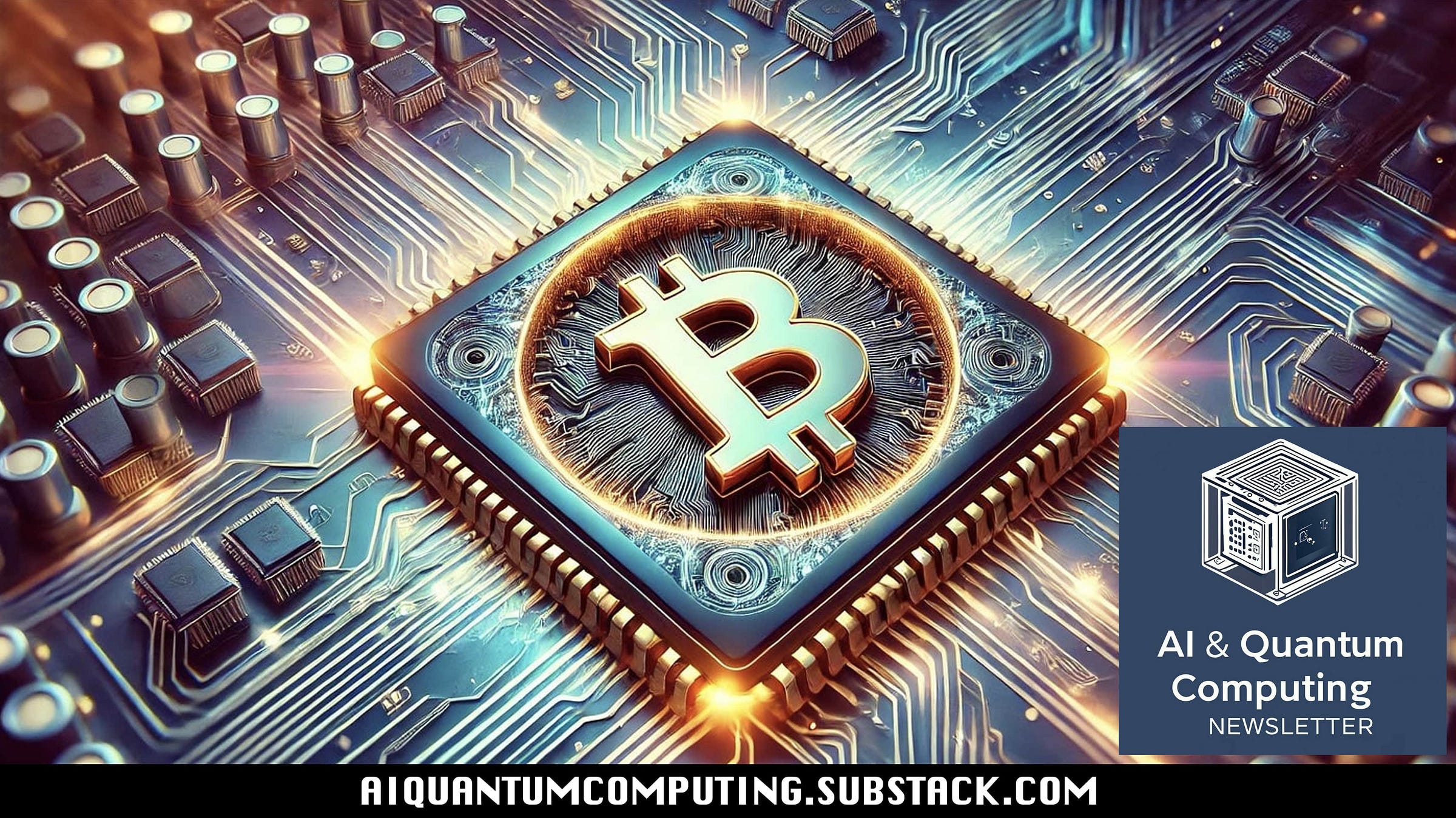Will Quantum Computing Make Satoshi Nakamoto’s Bitcoins Accessible Again?
Paolo Ardoino, CEO of Tether, makes the prediction.
On December 9, 2024, Google's Quantum AI team unveiled Willow, its new 105-qubit quantum processor. Willow has demonstrated its ability to correct errors exponentially and process certain calculations in minutes that supercomputers are unable to perform on time scales known only to physics.
That was all it took to reignite the debate on the theme: can quantum computing kill Bitcoin?
The mainstream media preferred not to mention the banking system and all the other modern systems that face the same risks in the face of the potential of quantum computing. Not surprising, since the general public could have panicked. Better to divert their attention by pointing the finger at the eternal villain: Bitcoin.
As a reminder, a quantum computer is a type of machine that exploits the principles of quantum mechanics to perform calculations much faster than conventional computers. Unlike conventional bits (0 or 1), it uses qubits, capable of existing in several states simultaneously thanks to superpositions and interacting via quantum entanglement.
These properties enable it to solve certain complex problems in record time, particularly in cryptography. However, current quantum computers remain experimental, limited in power, and still far from being able to solve complex equations.
For a more complete introduction to quantum computing, please read this introductory article:
But What Is Quantum Computing, Anyway?
Every time Google or IBM makes a breakthrough in quantum computing, you read a bunch of articles about how this emerging industry is going to change the world of the future. You watch videos telling you that the Bitcoin system will soon be in danger, just like the rest of the banking system, due to the incredible computational capabilities of quantum co…
Eventually, they could, in theory, threaten current encryption systems, including that of Bitcoin addresses.
Paolo Ardoino, CEO of Tether, the issuer of the USDT stablecoin, also wanted to join in the fun on the subject of Quantum Computing Vs. Bitcoin by predicting in a tweet:
“Prediction.
Quantum computing is still very far from any meaningful risk of breaking Bitcoin cryptography.
Quantum resistant addresses will eventually be added to Bitcoin before there is any serious threat.
All people alive (and that have access to their wallets) will move Bitcoin into new quantum resistant addresses.
Any Bitcoin in lost wallets, including Satoshi (if not alive), will be hacked and put back in circulation.”
According to Paolo Ardoino, even if quantum computing were to reach a level capable of breaking the cryptography of Bitcoin addresses, only lost addresses would be vulnerable. Active users, on the other hand, would only have to carry out a transaction to secure their funds in a quantum-resistant address.
It is important to note, however, that it is mainly the 1st Bitcoin addresses that would be affected. More recent addresses, such as Taproot, may already offer some resistance to quantum attacks.
Could quantum computers pose a threat to the Bitcoin Mining industry?
This risk isn't often mentioned by the mainstream media, but that's hardly surprising given their lack of knowledge of the subject and propensity to focus on surface-only topics, but the main risk posed by quantum computers to Bitcoin is related to the mining industry.
Indeed, even if they are not powerful enough to break address cryptography, they would far surpass the current ASICs used for Bitcoin mining. The integration of quantum computing into mining could thus lead to a significant increase in Bitcoin's Hash Rate, which already exceeds 800 EH/s.
The risk associated with the use of quantum computers in Bitcoin mining would only arise if a single player managed to master and control this technology. In this case, he could exploit the speed of quantum computing to find block nonces faster than other miners, thereby cornering a significant share of the Hash Rate, even with smaller, less energy-intensive machines.
As long as this technology remains in the hands of a single player, the risk of centralization persists. However, as soon as it becomes more widespread, the Hash Rate will naturally redistribute itself thanks to the laws of the free mining market. Ultimately, this will benefit the Bitcoin network even more, since with an ever higher Hash Rate that is well distributed among all players, the Bitcoin network will be even more secure!
Google Proposes a Hydride Quantum Simulator That Could Revolutionize Physics. Here’s an Overview.
Google continues to work hard to be one of the big winners in the quantum computing industry of the future. Google's quantum physics researchers have just developed an innovative approach to quantum simulation that uses both analog and digital methods.
Ion Traps vs. Superconducting – Which Is the Better Quantum Technology?
More and more people are talking about Quantum Computing, whether in the media or in the investment world where everyone fears one thing: missing out on the Next Big Thing.
Elon Musk’s Growing Parallel Power in America Is Problematic.
Democrats and Republicans are less and less supportive of the one they consider illegitimate.
Will Quantum Computing Revolutionize AI?
In recent years, quantum computers have raised hopes of profoundly transforming the fields of innovation and research. From cryptography to the challenges of superconductivity, not to mention drug design, these computers of tomorrow, powered by the quantum properties of matter, offer the possibility of breakthroughs. The reason? Their computing power is…







